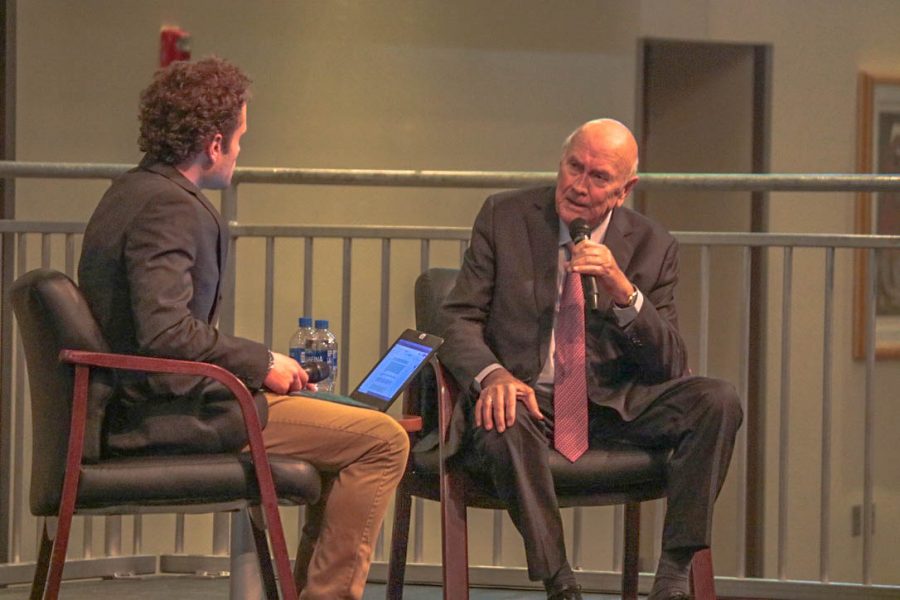Anyone who’s had their ear to the ground this past year knows that the Democrats are looking for signs of a comeback. President Obama’s declining poll numbers, along with election losses in New Jersey, Virginia, and most surprisingly, Massachusetts, have many pundits predicting a pendulum swing and major Republican gains in the 2010 congressional elections. While the accuracy of any prediction this early is questionable (a lot can happen in 10 months), the current trends do not bode well for Democrats.
But as bad as things have been for Democrats, things have been worse for everyday Americans. The challenges facing our country have never been greater. The economy is crippled, 1 in 10 American workers are unemployed, we are caught up in two wars, we face new threats to our national security, our planet is in peril, and millions of Americans have no health insurance. People are frustrated. They want their leaders to take real action.
Democrats have addressed these problems with a pragmatic and empirical mindset. Upon taking office, Obama took immediate action to fix the slumping economy in the midst of financial crisis. He and Democratic congressional leaders enacted wide-ranging tax-cuts and infrastructure investment in the American Reinvestment and Recovery Act. Martin Feldstein, the former chief economic advisor to Ronald Reagan, supported the stimulus in the Wall Street Journal:
- “…countering a deep economic recession requires an increase in government spending to offset the sharp decline in consumer outlays and business investment that is now under way. Without that rise in government spending, the economic downturn would be deeper and longer.” Wall Street Journal, 12/24/08, Page A11
Despite this, Republicans responded to the stimulus package with cries of “socialism” and “big government.” The GOP ideologues did not and cannot accept that government spending can be an effective economic stimulus. Their rhetoric consistently returns to a demand for tax-cuts, which seem to be the GOP’s cure-all. Democrats, on the other hand, have welcomed both targeted tax-cuts and infrastructure investment as part of their plans to combat recession. In fact, tax-cuts make up about 40 percent of the American Reinvestment and Recovery Act.
The GOP’s dogmatic economic policy agenda has further obstructed efforts by Democrats to enact common sense regulations for the banking industry to end the dangerous and risky behavior that led to the current recession. In the GOP ideologue’s warped perspective, regulation always impedes economic growth and deregulation always creates growth. This is a belief once held by former Federal Reserve Chairman Alan Greenspan, who, in the aftermath of the current recession, admitted to having “found a flaw” in his ideology.
Democrats, by comparison, are not ideologically opposed to deregulation. They acknowledge the potential for regulatory red tape to cause unnecessary bureaucracy and waste. However, they also understand that some targeted regulations are necessary to ensure stability and prevent risky and predatory lending. Rather than dealing in absolutes of good and bad, they demonstrate an understanding of the contextual elements of policy making.
GOP ideologues have further impeded Democrats in their attempts to reform our broken, unsustainable health care system. The GOP’s unrealistic beliefs in an infallible free-market have blinded them to the market-failure at the heart of the health insurance industry. Democrats have outlined a centrist solution that, according to the non-partisan Congressional Budget Office, ends insurance company abuse, insures 96 percent of Americans and reduces the deficit. They have included GOP ideas, such as interstate insurance exchanges and tort reform, in their proposals. Sadly, GOP ideologues’ blind hatred of any government action has resulted in outlandish attacks against reform. Their misinformation campaign spread myths about “death panels” and “health care gulags.” As the president recently observed, “if you were to listen to the debate…you’d think that this thing was some Bolshevik plot.”
Perhaps most disturbingly, Republicans have developed an ideological opposition to scientific findings. These ideologues insist that everything from evolution to climate change is a part of an elitist, liberal indoctrination plot. Such a belief would be funny if its consequences were not so dire. The resulting misinformation has seriously impeded efforts to pass market-based cap-and-trade legislation to combat the dangerous effects of climate change.
The rhetoric of the GOP ideologues, while counterproductive and extreme, has succeeded in its purpose. The GOP has effectively incited an uprising against the Democratic Party. They have succeeded in stalling government, demonizing Democrats and winning elections. They have even convinced some pundits that Democrats need to moderate. But that would be a mistake. The GOP may have succeeded in shifting public opinion with fear tactics and false populism, but it has not changed the reality of our situation. If we want to fix the problems facing this country, we need bold leadership, not dogmatic partisanship. We need new solutions, not recycled talking points. We need pragmatists, not ideologues.
To find out about the upcoming elections and how to register to vote, visit www.sludems.com








